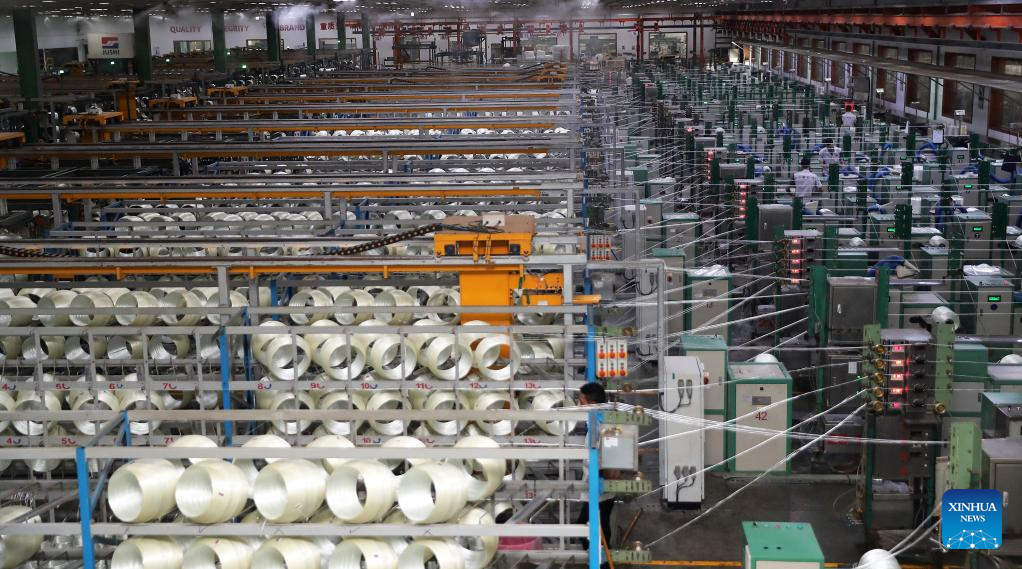
Staff members work on the fiberglass production line of Jushi Egypt in Suez, Egypt, June 26, 2023.(Xinhua/Wang Dongzhen)
by Xinhua writer Shen Danlin
CAIRO, June 30 (Xinhua) -- "Here, a young man with great ambitions finally had his dream come true after 11 years of hard work," Ahmed Soliman, the deputy general manager of Jushi Egypt, told Xinhua when he recalled his journey to career success in the Chinese fiberglass giant.
Soliman's adventure began 11 years ago when, fresh out of university at the age of 23, he secured a position as a technician in the roving workshop at Jushi Egypt's factory in the country's northern Suez Governorate.
Back in 2012, fiberglass manufacturing was uncharted territory for the North African country. "For me and most Egyptians and even people in other Middle Eastern countries, fiberglass manufacturing is an entirely unfamiliar term," Soliman said.
After doing a quick research on the internet, Soliman realized that joining Jushi Egypt is "a great opportunity not easy to meet again," and did his best to get the job. "Today I can say I am proud to join this Chinese company," beamed the 34-year-old executive, one of the two most senior Egyptian employees at Jushi Egypt.
The success story of Soliman is only a small chapter of Jushi Egypt's saga in the most populous Arab country. Since entering China-Egypt TEDA Suez Economic and Trade Cooperation Zone in January 2012, Jushi Egypt has established the Egyptian fiberglass industry from scratch. At present, the company's fiberglass manufacturing base has an annual production capacity of 340,000 tonnes, making Egypt the largest fiberglass producer in Africa and the fourth largest producer in the world.
As a subsidiary company controlled by China's Jushi Group, the world's largest fiberglass manufacturer, Jushi Egypt has created more than 2,000 jobs, generated over 40 million U.S. dollars in tax revenue, and brought in more than 1 billion dollars in foreign exchange income for Egypt. The company's success is a mutually beneficial outcome of the Belt and Road Initiative (BRI), a global economic cooperation framework launched by China in 2013.
While contributing to Egypt's economic development, Jushi Egypt has become one of the leading enterprises in the Suez Canal Economic Zone and the largest Chinese investment project in the Egyptian manufacturing sector.
Furthermore, the China-Egypt TEDA Suez Economic and Trade Cooperation Zone, where Jushi Egypt is located, has flourished through the deepening collaboration between the two countries. It is one of the leading industrial parks in Egypt and boasts the largest investment and the highest unit output, attracting more than 130 Chinese companies and providing over 50,000 direct and indirect job opportunities.
Guided by the ancient Chinese proverb, "Give a man a fish and you feed him for a day; teach a man to fish and you feed him for a lifetime," Jushi Egypt has been committed to teaching young Egyptian talents "to fish."
Besides frequently asking Chinese experts to Egypt to train local technical and management teams, Jushi has also sent a significant number of Egyptian employees to its headquarters in China to learn advanced production and management models. Soliman went to the headquarters for training three times in 2012, 2016, and 2023.
According to Karim Rabea, head of the human resources department at Jushi Egypt, the company treats Chinese and Egyptian employees equally in terms of recruitment and promotion. More than 98 percent of the employees and 78 percent of middle management in Jushi Egypt are Egyptians.
Dina Mahmoud, deputy manager of the planning and logistics department, is an experienced employee who has worked at Jushi Egypt for 10 years, and the only woman in the middle management. Recalling her hard work in the past decade, Dina was deeply touched by the achievements made by herself and the company.
"Through the years, the production output has been increasing. Since the first production line started in 2013, the monthly output has more than quadrupled which was a big challenge to all of us," Dina said.
Dina also found her true love at Jushi Egypt.
"The first time I met my husband Abdallah was in Jushi. He was the deputy manager of the felting workshop. He helped me a lot during work and made me understand many technical details of the production process," said Dina, who could not hide her smile when speaking of her family.
At the stone storage yard at Jushi Egypt, hills of different stones there will turn into snow-white, steel-hard and paper-light fiberglass through the advanced manufacturing process brought by Jushi, earning much-needed foreign exchange incomes for Egypt and tapping Egypt's rich mineral and human resources efficiently.
Like the BRI connecting China and Egypt, the fiberglass produced by Jushi has not only helped achieve mutual benefit and common development between the two countries but also brought closer the friendship between the two peoples.
Although there is only one general manager who ranks higher than him at Jushi Egypt, Soliman does not think his career at Jushi will stop there. "With our company becoming more international, integrated, and green, I will double my efforts to meet the higher requirements of the company. I believe I will be better in the future than I am now," he said.
"The potential is unlimited. I believe we will always be the best," Soliman told Xinhua. ■
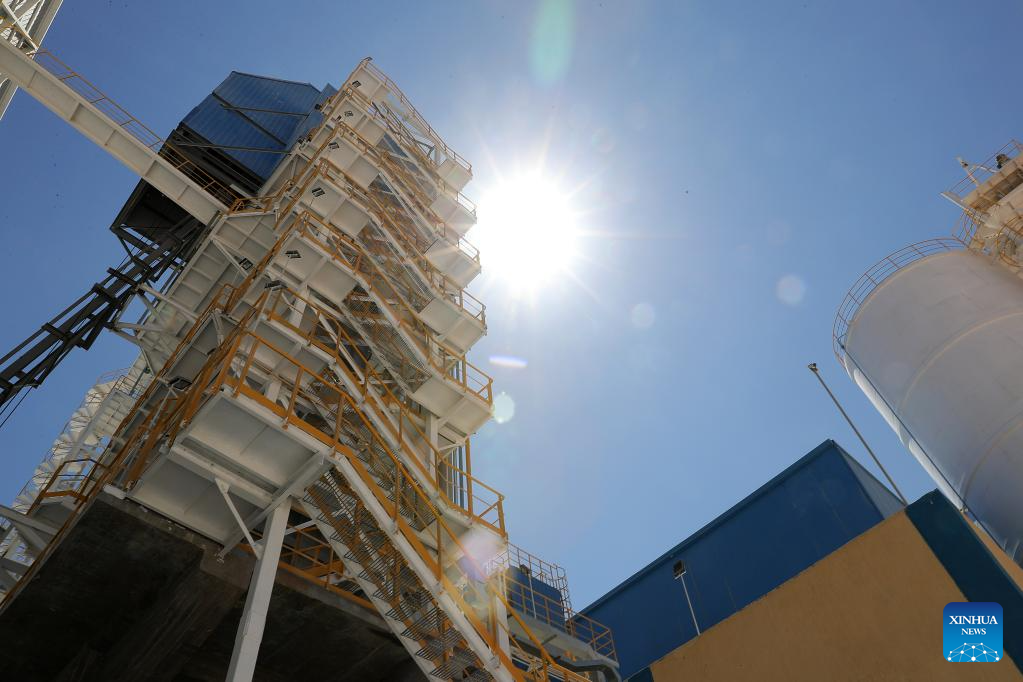
This photo taken on June 26, 2023 shows an exterior view of a workshop of Jushi Egypt in Suez, Egypt.(Xinhua/Wang Dongzhen)
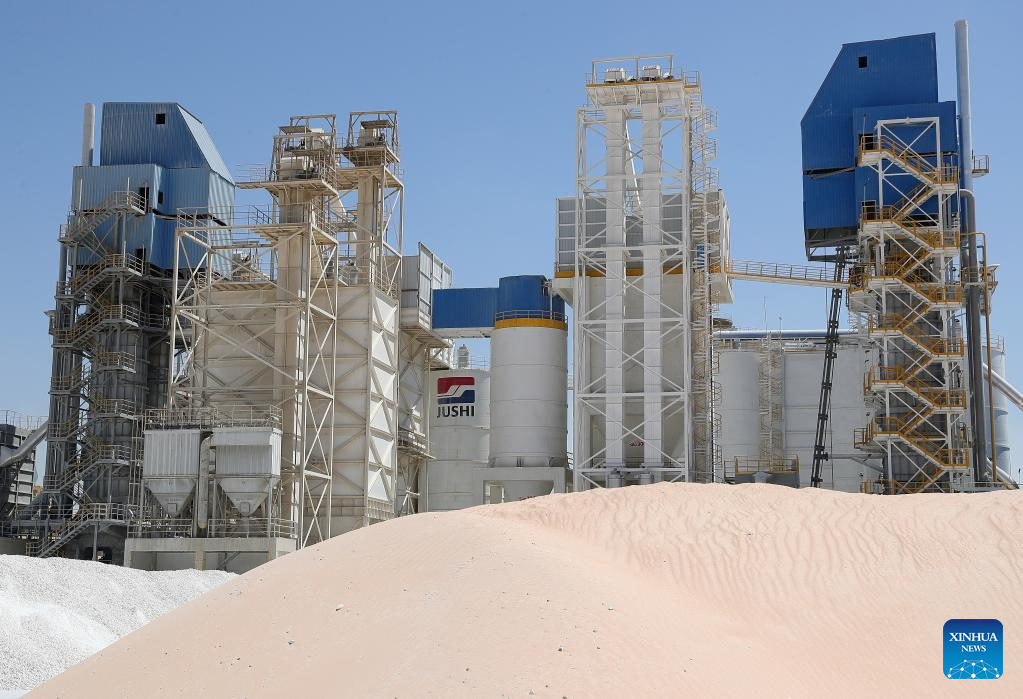
This photo taken on June 26, 2023 shows an exterior view of a workshop of Jushi Egypt in Suez, Egypt.(Xinhua/Wang Dongzhen)
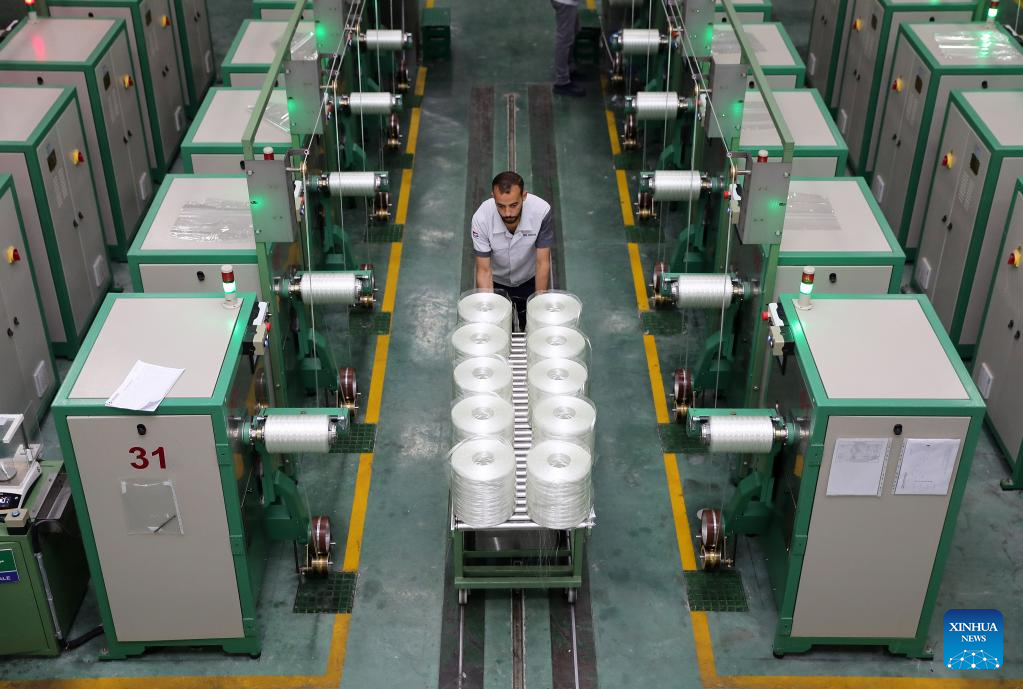
A staff member works on the fiberglass production line of Jushi Egypt in Suez, Egypt, June 26, 2023.(Xinhua/Wang Dongzhen)
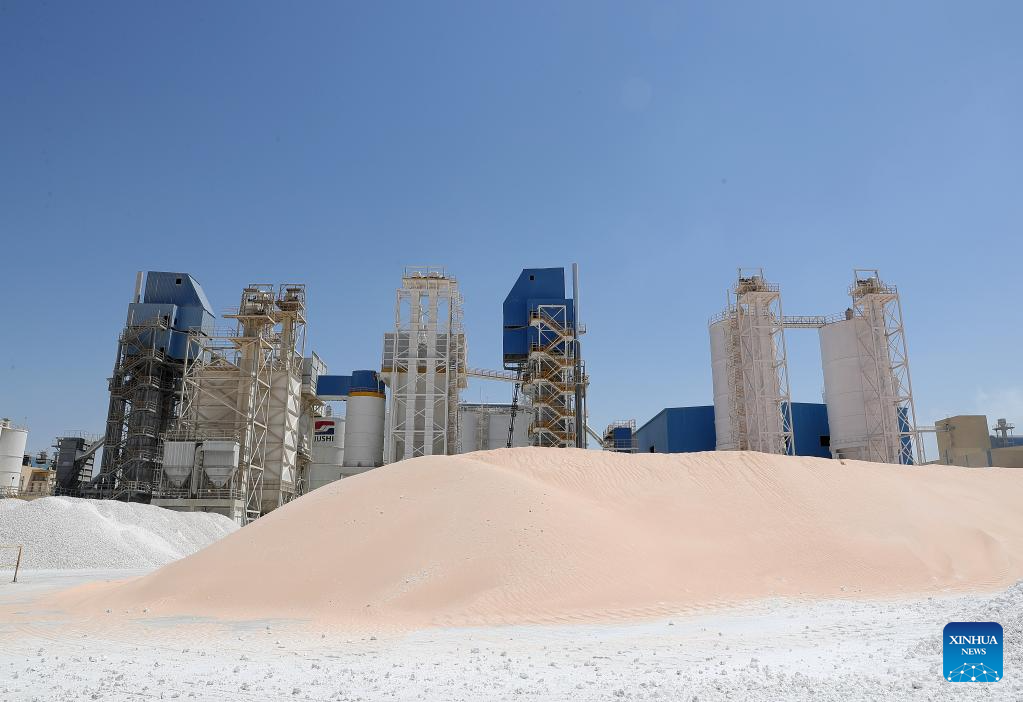
This photo taken on June 26, 2023 shows an exterior view of a workshop of Jushi Egypt in Suez, Egypt.(Xinhua/Wang Dongzhen)
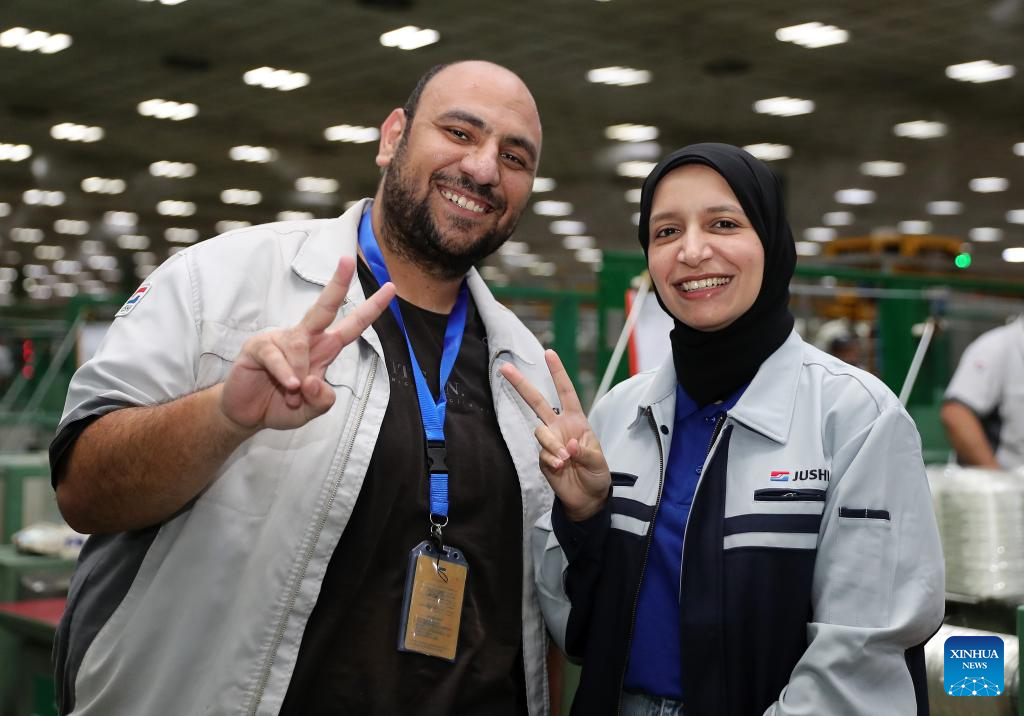
Dina Mahmoud, deputy manager of the planning and logistics department, poses for a photo with her husband Abdallah, deputy manager of the felting workshop, at Jushi Egypt in Suez, Egypt, June 26, 2023.(Xinhua/Wang Dongzhen)
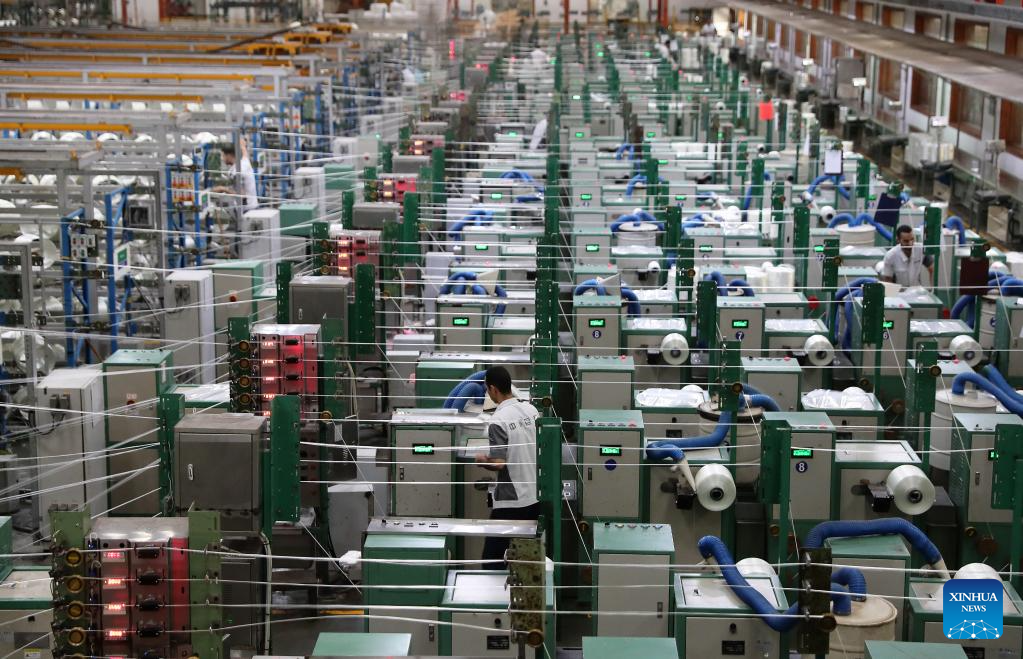
Staff members work on the fiberglass production line of Jushi Egypt in Suez, Egypt, June 26, 2023.(Xinhua/Wang Dongzhen)
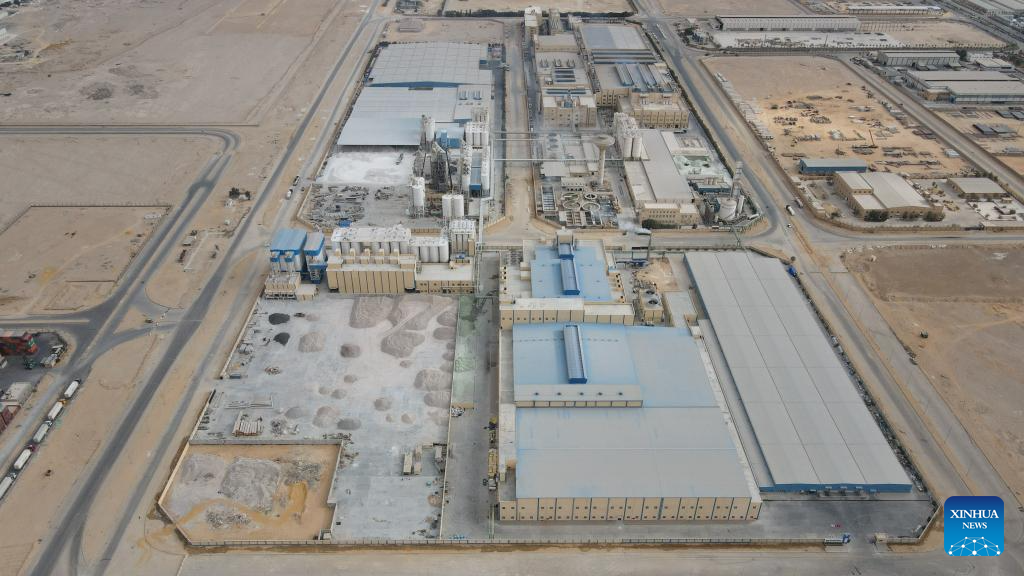
This aerial photo taken on Jan. 6, 2023 shows a view of Jushi Egypt in Suez, Egypt.(Jushi Egypt/Handout via Xinhua)
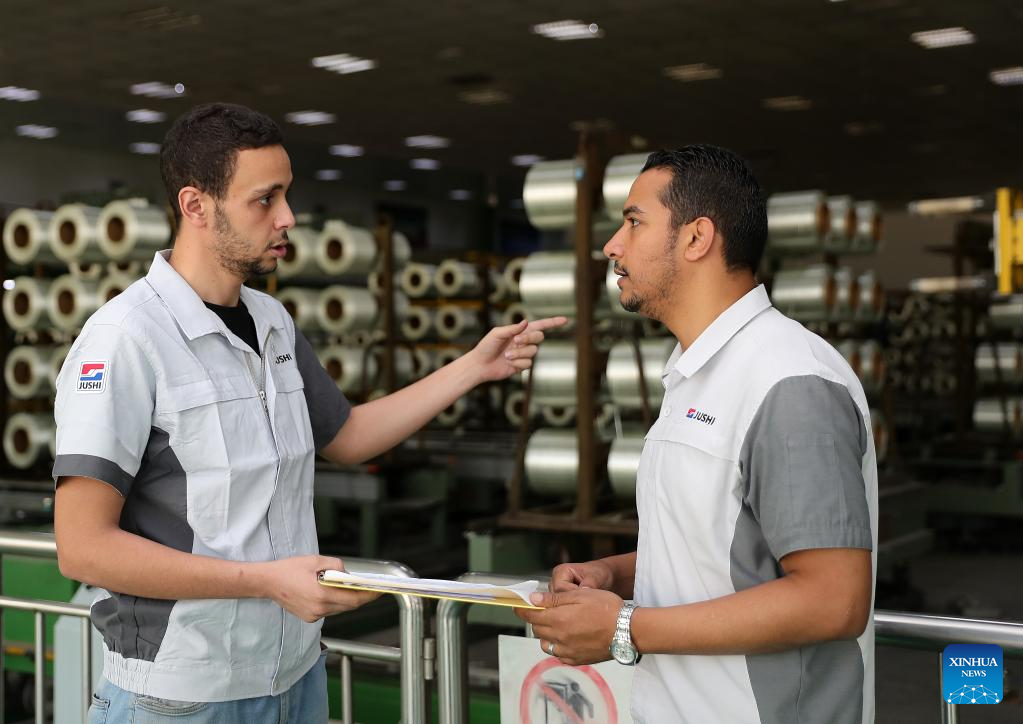
Ahmed Soliman (R), the deputy general manager of Jushi Egypt, talks with a staff member at a workshop of Jushi Egypt in Suez, Egypt, June 26, 2023.(Xinhua/Wang Dongzhen)
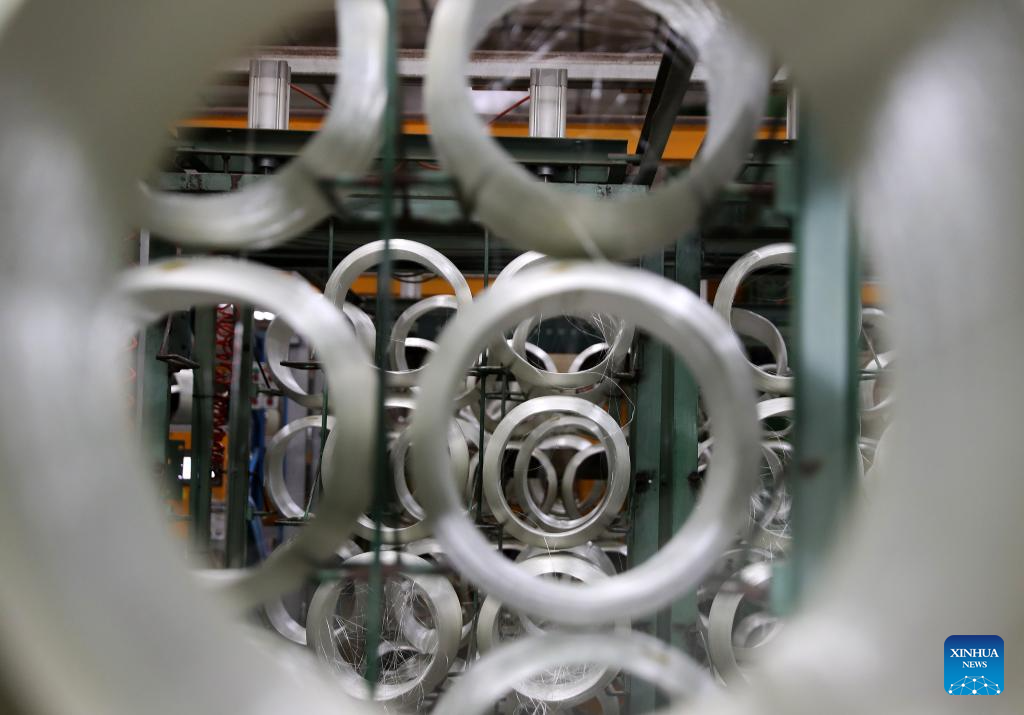
This photo taken on June 26, 2023 shows fiberglass products of Jushi Egypt in Suez, Egypt.(Xinhua/Wang Dongzhen)
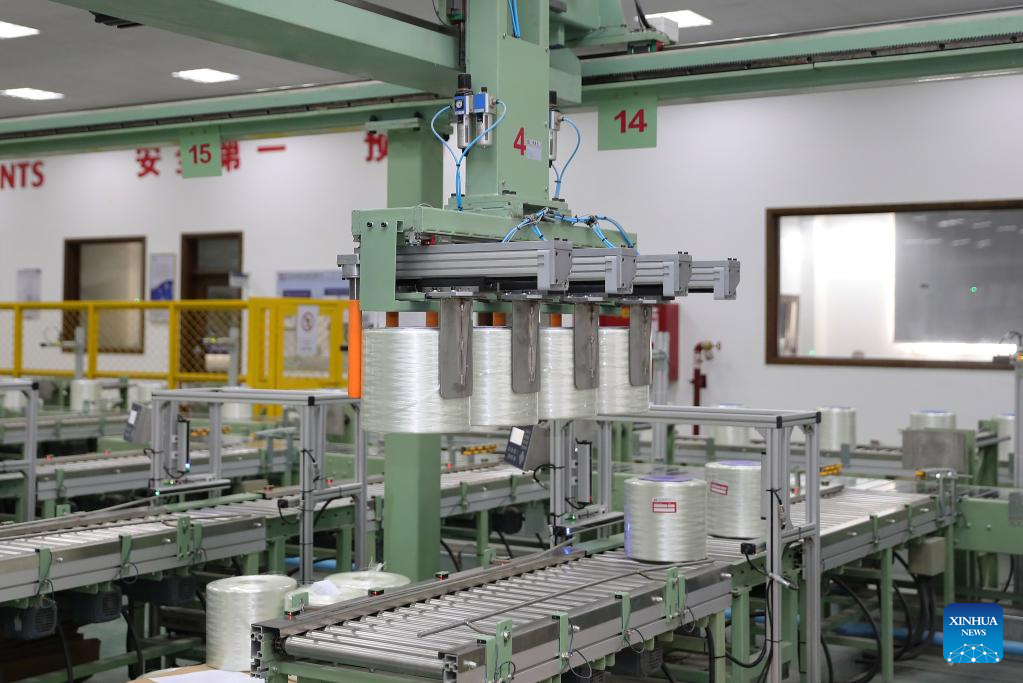
This photo taken on June 26, 2023 shows a packaging workshop of Jushi Egypt in Suez, Egypt.(Xinhua/Wang Dongzhen)
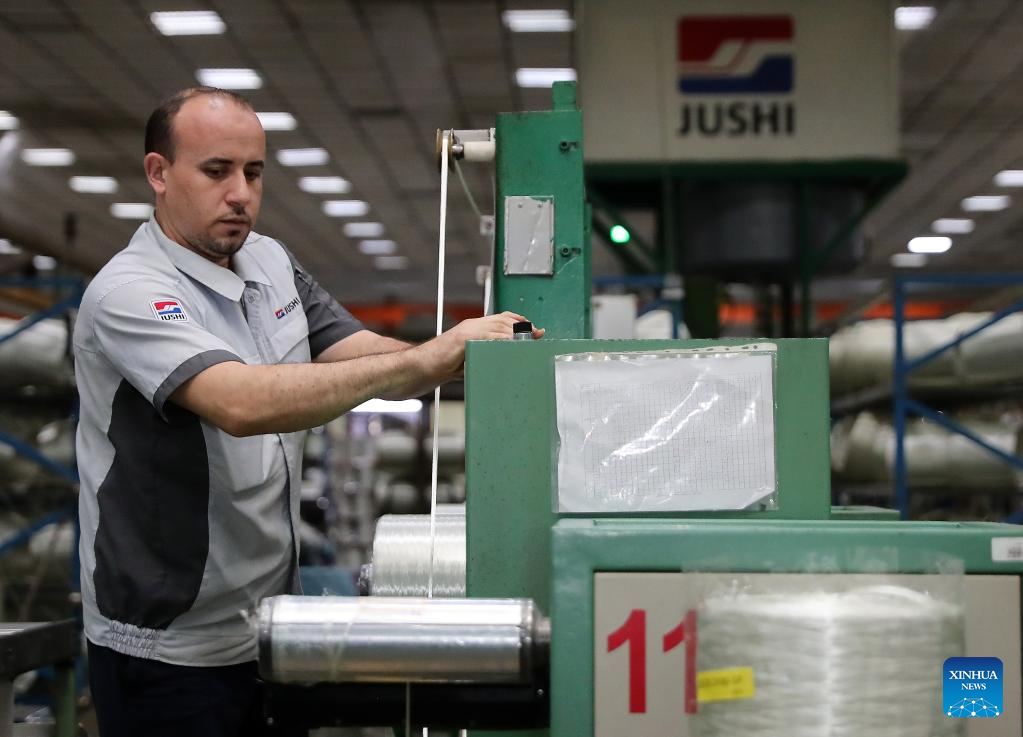
A staff member works on the fiberglass production line of Jushi Egypt in Suez, Egypt, June 26, 2023.(Xinhua/Wang Dongzhen)
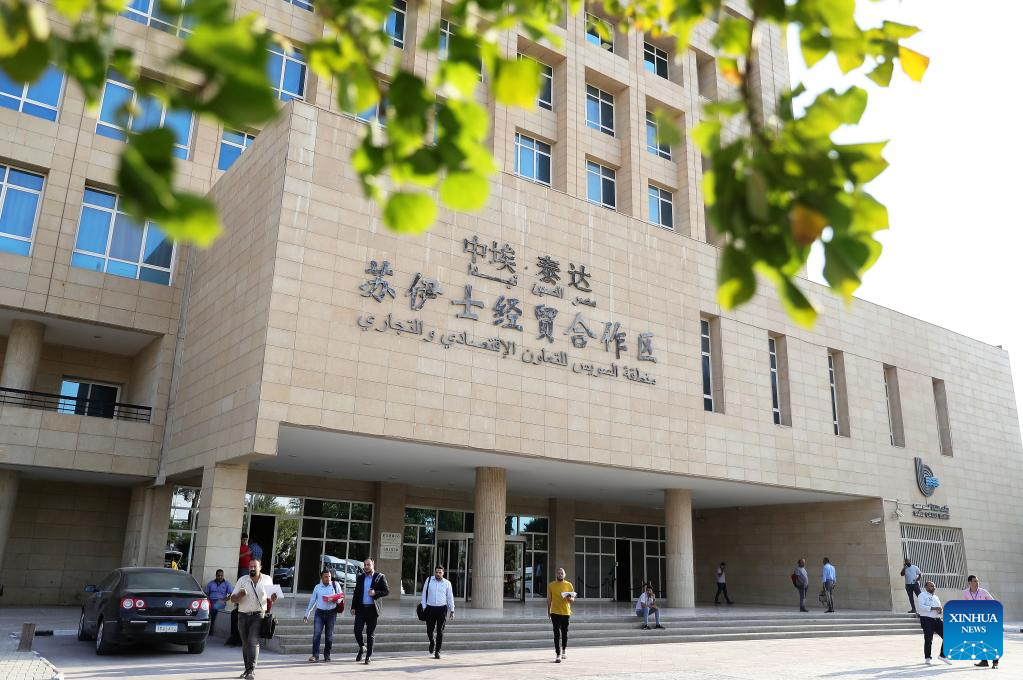
This photo taken on Sept. 7, 2022 shows an office building of the China-Egypt TEDA Suez Economic and Trade Cooperation Zone in Suez, Egypt.(Xinhua/Wang Dongzhen)
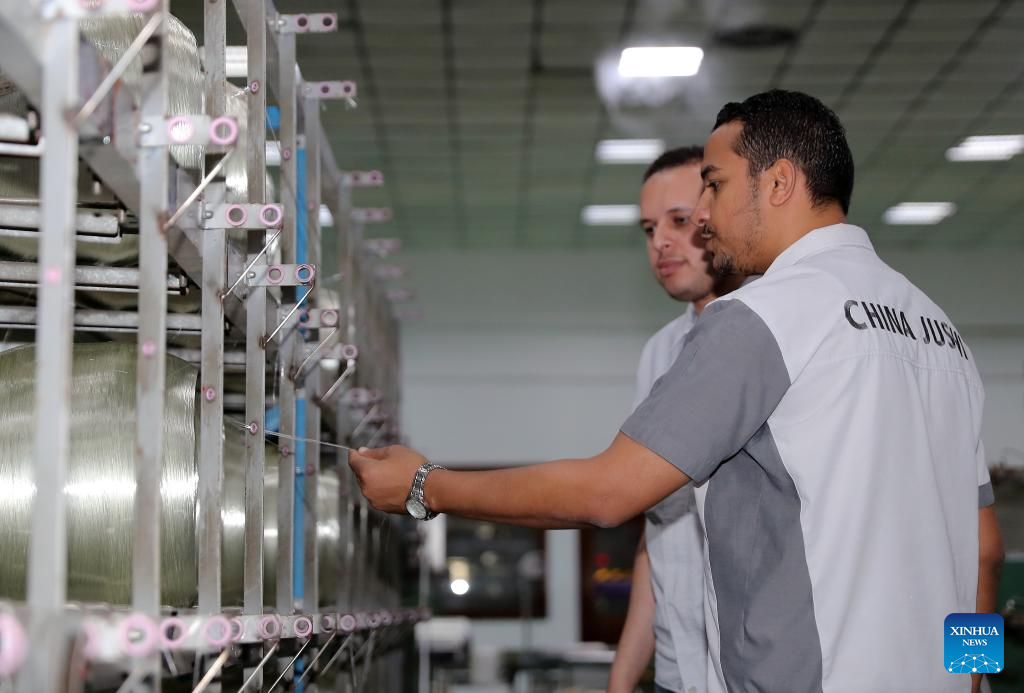
Ahmed Soliman (R), the deputy general manager of Jushi Egypt, talks with a staff member at a workshop of Jushi Egypt in Suez, Egypt, June 26, 2023.(Xinhua/Wang Dongzhen)
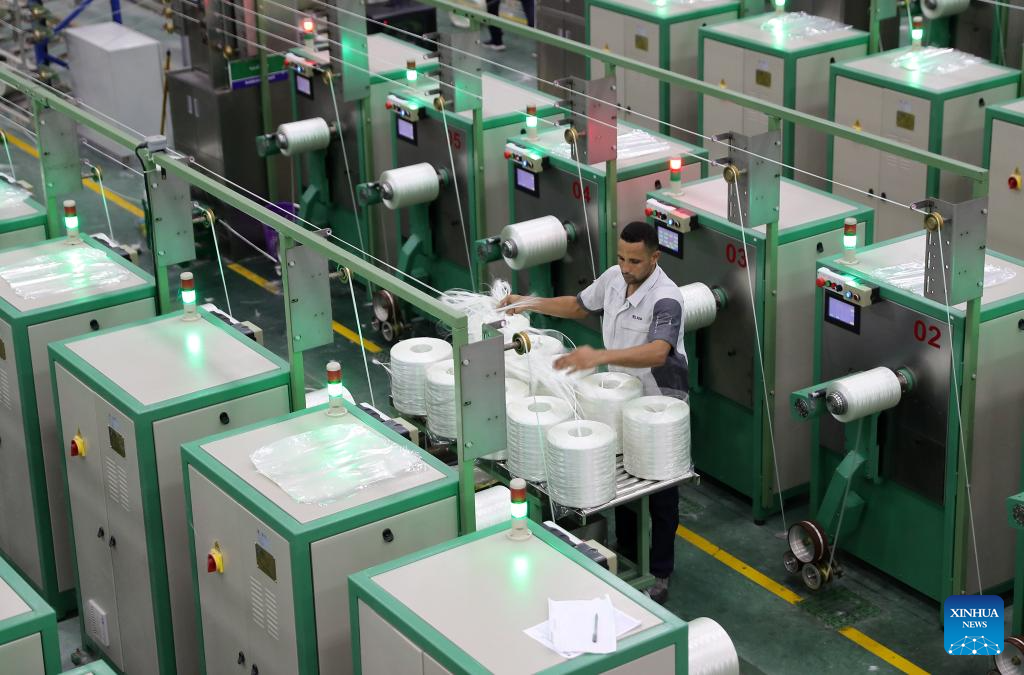
A staff member works on the fiberglass production line of Jushi Egypt in Suez, Egypt, June 26, 2023.(Xinhua/Wang Dongzhen)
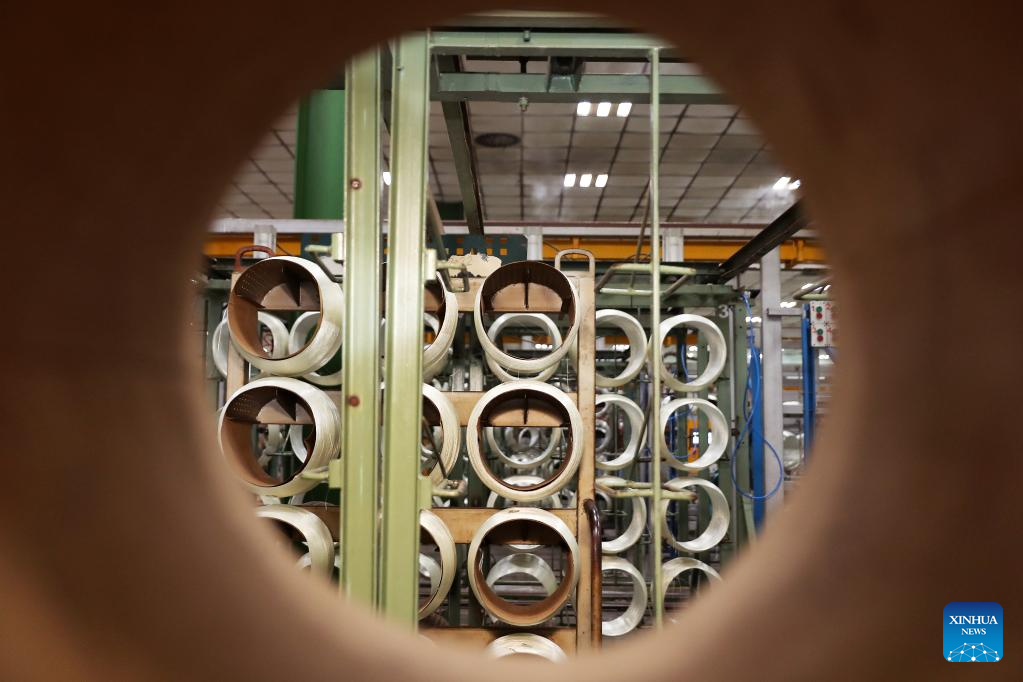
This photo taken on June 26, 2023 shows fiberglass products of Jushi Egypt in Suez, Egypt.(Xinhua/Wang Dongzhen)



